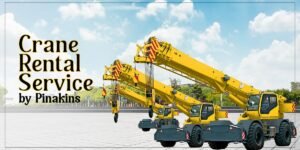In the dynamic world of construction, the evolution of machinery has been nothing short of revolutionary. At the heart of this evolution is the concrete pump machine, a marvel that has significantly enhanced the efficiency and speed of construction projects. This guide dives deep into the world of concrete pump machines, shedding light on its different variants, benefits, and considerations when hiring or purchasing one.
Table of Contents
ToggleThe Anatomy of the Concrete Pump Machine
Concrete pump machines are designed to transport and distribute concrete with unmatched precision. They consist of several components, including the hopper, the pump, and the valve system. Additionally, many concrete pump machines come with a concrete pump mixer integrated, ensuring that the concrete remains in fluid form and is consistently mixed until it’s poured.
Delving into the Concrete Pump Trailer
A popular choice among construction experts, the concrete pump trailer is a versatile beast. It’s not bound to a truck, which means it can be attached to different vehicles, making it quite adaptable to varying construction site conditions. This is especially handy when the job requires a pump that’s both powerful and mobile.
Should You Buy or Hire Concrete Pump Machines?
This is a dilemma many face. While purchasing can be a significant investment, hiring or opting to hire concrete pump machines is a flexible alternative. This choice largely depends on the frequency of use, budget, and the project’s scale. Hiring is especially beneficial for one-off projects or when you need specialized equipment that would be too costly to purchase outright.
The Concrete Pump Machine: Data, Facts, and ROI
- Global Market Growth: The global concrete pump market was valued at approximately $3.5 billion in 2018. Projections suggest that it will register a compound annual growth rate (CAGR) of around 6% from 2019 to 2025.
- Efficiency Enhanced: A modern concrete pump can move concrete as fast as 70 cubic meters per hour.
- Reduced Labor Needs: Before the advent of the concrete pump, a site would need around 10 laborers to transport the mix. With a pump, the manpower requirement is reduced by 70%.
- Precise Pouring: With its controlled mechanism, concrete pumps can reduce wastage by almost 20% compared to manual pouring.

Comparison Table: With vs. Without Concrete Pump Machines
| Parameter | With Concrete Pump | Without Concrete Pump |
| Speedr | 70 cubic meters/h | 10 cubic meters/hr |
| Manpower Needed | 3 persons | 10 persons |
| Wastage | 5% | 25% |
| Cost Efficiency | High due to reduced wastage and manpower | Lower due to higher wastage and manpower needs |
ROI and Cost: With or Without Concrete Pump Machines
While the initial investment in a concrete pump machine can range from $30,000 to $250,000 depending on the model and specifications, the ROI is quickly realized through:
- Reduced labor costs.
- Faster project completion, allowing for more projects in a year.
- Decreased material wastage.
Considering the cost savings, many construction companies find that the machine pays for itself within a year or two, depending on the frequency of use.
Read More :
- Boom Placer Pros and Cons of Purchasing vs. Renting the Machine
- Vibratory Hammer: Unveiling the Power Behind Precise Foundation Construction
- Piling Rig: The Foundation of Construction Excellence
The Concrete Pump Mixer – A Two-in-One Wonder
Combine the power of a mixer with a pump, and you’ve got the concrete pump mixer. This innovative solution ensures that the concrete is not only transported but also kept in a consistently mixed state, ready for pouring. This dual functionality can significantly increase efficiency on-site, reducing downtime and ensuring a smooth pour.
Decoding Concrete Pump Prices
Let’s get real; concrete pump prices can be daunting. Factors affecting the cost include the pump’s capacity, type (whether it’s a trailer, boom pump, or a mixer pump), and brand. But it’s essential to look beyond the initial price tag. Consider maintenance costs, longevity, and efficiency, which can significantly impact the total cost of ownership.
Portable Concrete Pump: The Flexible Choice
For sites with challenging access or varied locations, the portable concrete pump emerges as the hero. Lightweight and easy to maneuver, this pump can be quickly moved around the construction site, ensuring that concrete is delivered precisely where it’s needed.
Ensuring Seamless Operations with Concrete Pump Service
Maintenance and regular service are paramount. Opting for a comprehensive concrete pump service ensures your machinery stays in top-notch condition, minimizing downtimes and ensuring consistent performance. Regular servicing also extends the machine’s life, offering better value for money.
The Underdog: The Small Concrete Pump
Don’t let its size deceive you. The small concrete pump is perfect for projects with limited space or when precision is paramount. While it might not have the capacity of its larger counterparts, its adaptability and efficiency in specific scenarios are unparalleled.
Know Your Machine: Concrete Pump Parts
A well-maintained machine is one where every part is in perfect working condition. Familiarizing oneself with concrete pump parts is vital. From the valves to the hoppers and the hoses in between, understanding each component’s function can be crucial for troubleshooting and ensuring the pump’s optimal operation.
Read More :
- JCB Backhoe Loader: Power, Versatility, and Returns
- Boom Placers: Enhancing Efficiency and Precision in Construction Projects
- Vibratory Hammer: Unveiling the Power Behind Precise Foundation Construction
FAQs on Concrete Pump Machines:
Q: What’s the average lifespan of a concrete pump machine?
A: With regular maintenance and servicing, a concrete pump machine can last 7-10 years, sometimes even longer.
Q: How often should I service my concrete pump?
A: It’s recommended to service your pump after every 50-60 hours of operation or as suggested by the manufacturer.
Q: Is training required to operate a concrete pump?
A: Yes, proper training ensures safe and efficient operation. Many manufacturers and rental services offer training sessions.
Q: How do I reduce blockages in my concrete pump machine?
A: Regular cleaning and using quality concrete mix can help in reducing blockages. Also, ensuring the concrete isn’t too thick or too wet can prevent clogging.
Q: What’s the difference between a boom pump and a line pump?
A: A boom pump is truck-mounted and uses a robotic arm to deliver concrete. It’s ideal for larger projects. A line pump, on the other hand, is more portable and suitable for smaller job sites.
Q: Are portable concrete pumps less efficient than stationary ones?
A: Not necessarily. While portable pumps might have a smaller capacity, they are just as efficient in terms of speed and precision, especially for smaller jobs or hard-to-reach areas.
Q: Is it more cost-effective to buy or rent a concrete pump machine?
A: It depends on the frequency of use. For one-off or infrequent projects, renting is more cost-effective. If you’re consistently working on projects that require a pump, purchasing might be a better long-term investment.





